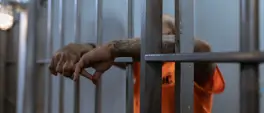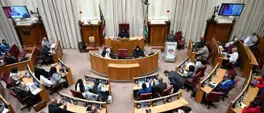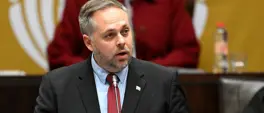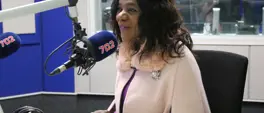Rise Mzansi: 'Tintswalos' exist, but too many young people have been left behind
Thabiso Goba
9 February 2024 | 14:55In his State of the Nation Address (SONA) on Thursday, Ramaphosa used an analogy of a fictional character called Tintswalo - a born-free who has benefitted from government's provision of housing, water, electricity, education, and healthcare.
JOHANNESBURG - Political party Rise Mzansi said while 'Tintswalos' exist, there are far too many young people who have been left behind in South Africa’s democracy.
In his State of the Nation Address on Thursday, President Cyril Ramaphosa used an analogy of a fictional character called Tintswalo - a born-free who has benefitted from government’s provision of housing, water, electricity, education and healthcare.
The story resulted in social media going abuzz with the hashtag, “I am Tintswalo”, with users sharing their stories of how government assistance has elevated them.
READ: Ramaphosa's 'Tintswalo' SONA story draws mixed reaction from South Africans
Rise Mzansi’s national co-ordinator Makashule Gana went to public schools for his primary and secondary education.
His first degree at Turfloop University was funded by government through the then Tertiary Education Fund of South Africa (TEFSA) bursary.
Gana said it’s undeniable he has benefitted from the country’s democracy.
“I have benefitted from this democracy but there are millions of people of my generation that are yet to taste the fruits of democracy. The reason Rise Mzansi exists is to ensure that the millions of people, the Thandis and the Thabos of this world can also get to taste the fruit of democracy.”
'WHERE I GREW UP, LIFE IS VERY HARD'
One young Johannesburg resident said he cannot relate to President Cyril Ramaphosa's story on Tintswalo.
Nqobile Mhlongo, an unemployed 31-year-old man from Braamfischerville spoke to Eyewitness News.
Much like Ramaphosa's Tintswalo, Mhlongo lives in an RDP house and went to no-fee government schools.
Mhlongo said life is difficult for young people not born into privilege.
"The youth of Mzansi is under a lot of pressure, but we will never be the same because we don't come from the same households. Those who grew up with money and everything provided to them, they don't need to find jobs but where I grew up, life is very hard."
Youth unemployment for people aged 34 years and under currently stands at 43.4% percent.
Get the whole picture 💡
Take a look at the topic timeline for all related articles.
















